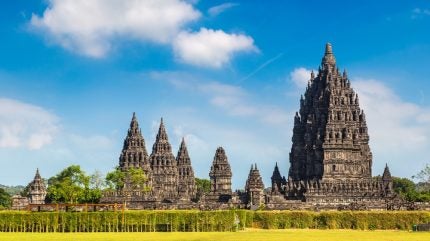
The IAF and ITMF conference, which was hosted in close collaboration with the host Indonesian Textile Association (API), gathered over 400 delegates from around the world from across the entire textile and apparel value chain.
The programme included a range of high-level discussions on topics that will have the biggest impact on the global apparel and textile industry, including technology adoption, evolving legislation, fibre innovation, audit fatigue reduction, decarbonisation, AI applications, and the transformation of the Indonesian textile and apparel sector.

Discover B2B Marketing That Performs
Combine business intelligence and editorial excellence to reach engaged professionals across 36 leading media platforms.
It also showcased innovation, sustainability, and collaboration with the winners of the annual ITMF Awards.
Conference delegates were welcomed by the Sultan of Yogyakarta, Indonesia, at a distinguished opening dinner, while the Gala Dinner held in front of the iconic Prambanan Temple provided a spectacular setting for networking and celebration. This special evening also marked the beginning of the tenures of ITMF president Juan Parés and IAF president Stefano Festa Marzotto.
Delegates were also invited on a series of company visits that showcased Indonesia’s textile and apparel ecosystem. This included trips to PT Dan Liris, PT Pan Brothers, PT Ambassador Garmindo, Gallery Batik Jawa, PT Golden Tekstil Indonesia (GTI) and PT Ungaran Sari Garment. The goal was to gain insights into the country’s manufacturing excellence, innovation capacity, and commitment to sustainability.
IAF and ITMF explained that the event was aided by the Indonesian Textile Association (API) as well as PT Dan Liris and PT Pan Brothers, and they showcased Indonesia’s vibrant and forward-looking textile and apparel industry.

US Tariffs are shifting - will you react or anticipate?
Don’t let policy changes catch you off guard. Stay proactive with real-time data and expert analysis.
By GlobalDataPlus, apparel industry leaders were keen to share a clear message: sustainability and decarbonisation underpin competitiveness. The industry explained it must reinvent itself around low-carbon growth, circular production and fairer value distribution.





